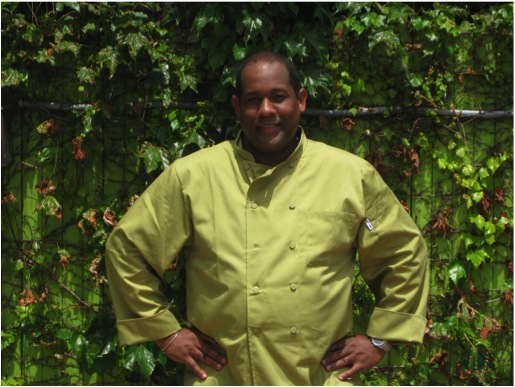With the Thanksgiving holiday on the horizon, our thoughts turn to winter and the procurement of a bird worthy of gracing our holiday table for the big feast. We begin scouting cookbooks and food magazines for new twists on traditional recipes or for the promise of new modern techniques to cook the bird faster, tastier and juicier than ever before.
We spend so much time stressing over the perfect turkey, that often times we end up putting minimal or no effort into the selection and preparation of the supporting cast – the side dishes.
I learned just how important of a role side dishes played in the overall dining experience during a stint working on the line at a French restaurant. The chef at the helm was probably the calmest, most calculated and knowledgeable foodie I had ever met. When he wasn’t pissed off that is!
I was primarily responsible for two things on the line: butchering, seasoning and cooking off lamb chops when an order arrived at my station and prepping a side dish ahead of time and holding it for service. This accompaniment would be served with two different main course dishes from the menu.
The side dish was called Potato Dauphinoise. This is just a glorified version of scalloped potatoes with a French accent added and would seem easy enough to prepare, even to the lay person, upon reading the recipe.
A dish of simple execution – without much fanfare, even bordering on boring; requiring little or no direction or intervention or instruction from the chef (what with all my fancy knowledge and skills from a way too expensive culinary school).
Or so I thought.
Upon presenting the finished dish to the chef on my first day, I quickly recognized that he was either not happy with me, or the dish or both. During his screaming rampage in his native tongue, I was able to decipher only a few words because of my exceptionally limited knowledge of the French language. I was certain though that I heard something along the lines of shit. I don’t know if his reference was directed to me personally or the dish but I settled on the latter so as to allow myself to continue to work with this mad , tyrannical genius.
After reducing his decibel level to a more comfortable condescending tone, I figured out that he was not happy with the depth of color I created on the top of the potatoes. I guess my idea of golden brown was not in sync with his. He promised not to allow my hard work preparing the dish to go in vain. He summoned the dishwasher to package it really well for me to carry out. His instructions to me was, “take this to someone you don’t like and let me teach you how to make food that people will pay to eat”.
Humiliating the rookies was a way of life and learning in the French kitchen and this rookie sure got a good dose of it. He went on to question if I spent all that money and time on culinary school to learn how to follow a recipe or did I learn how to cook good food. He explained that anyone can read and follow cooking instructions but the artistry manifests itself when you constantly question the methods you employ and relentlessly think about how to coax more natural flavor from the products being utilized without compromising the end result, especially when executing traditional recipes that would not be received well if you were to significantly modify the dish.
This lunatic spent more than an hour and a half explaining the texture and flavor of different types of potatoes, the specific three millimeter thickness of the slice, the differences in fat content of cream, the importance of heavy bottomed saucepans, the science behind kosher salt, how nutmeg can screw up a marriage, the importance of a properly calibrated oven, proper browning techniques, mandolin mechanics and on and on. And here I thought I was gonna cook a French version of my mom’s scalloped potatoes and a couple of lamb chops and go home.
Not that day.
He also explained that the very same level of care and importance that is put into executing the main protein for the plate should be adhered to also when preparing the accompaniments. In his words, “that’s what separates a chef from a shoemaker”. We proceeded to work together on his version of Potatoes Dauphinoise. The end result was nothing short of amazing. It blew my mind that though he followed the very same techniques written in the recipe, he was able to completely transform the dish by simply applying the details that he explained to me earlier.
By the third week I was a Dauphinoise expert and started to apply some techniques of my own to slightly modify the dish by reducing the amount of cheese that was called for. My new recipe not only reduced the food cost of the dish, it also reduced the calorie content without compromising flavor.
Not only was my modification accepted in the kitchen, it was then adopted as the new standard recipe. I moved on to another cooking station on the line and that very day I heard the chef screaming at the rookie who took over my station. Class was back in session!
So take a lesson from me this Thanksgiving, use this recipe and give it your full attention and get the satisfaction that you have prepared a full thanksgiving plate using all your cooking sensibilities. Your family will praise you for the extra effort!
Potatoes Dauphinoise recipe (it’s all in the technique)
3 pounds Chef Potatoes
6 garlic cloves, chopped fine
40 oz heavy cream
¼ Cup unsalted butter, room temperature
½ cup good quality Parmesan cheese, coarse ground
Ground nutmeg, pinch
Salt, as needed
Using a 20 inch by 12 inch baking dish, use softened butter to butter the entire pan bottom and sides liberally. Heat oven to 350 degrees Fahrenheit.
Dot the bottom of the buttered pan all over with the chopped garlic sparingly. This is to impart a very MILD essence of garlic flavor to the dish, without overpowering it. In a large heavy bottomed pot, add the heavy cream and heat to a simmer. Remove from the fire and season with enough salt to taste as if it was sea water. Add a pinch of nutmeg. Do not be tempted to add more than a pinch of nutmeg, or if you need a gauge, then no more than a ½ teaspoon. Stir to incorporate the nutmeg and salt completely then set aside.
Peel each potato and immediately slice on a mandolin into 3mm slices and add to the heavy cream mixture. It is best to peel and slice one potato at a time so as not to create discoloration on the potato. Be very careful using a mandolin as you can lose body parts if you are not paying attention. Add the potatoes immediately to the heavy cream each time. DO NOT HOLD IN WATER. You will remove much of the starch content that helps to hold this dish together if you hold the potatoes in water.
Return the potatoes in heavy cream mixture to a medium heat and bring to a simmer. Turn heat to low and cook at a slow simmer turning the potatoes occasionally for 15 minutes.
Remove from the heat and layer half the contents of pot into the buttered baking dish. Spread out evenly then sprinkle half the parmesan cheese over the potatoes in the baking dish. Layer in the rest of the potatoes and heavy cream from the pot. Sprinkle the rest of the parmesan cheese over the top evenly. DO NOT BE TEMPTED TO ADD MORE CHEESE. The dish will be sufficiently rich and cheesy tasting.
Bake in a 350 degree oven for approximately 45 minutes until the potatoes are just tender and the top is GOLDEN brown, not dark brown. If the top is getting too dark and the potatoes are not fully cooked, cover the top with aluminum foil for the rest of the baking process to retard further browning of the top.
Remove from the oven and allow to cool and set for approximately 20 minutes, then serve.
This dish re-heats well but loses a little of its decadence each time you do so.
Nigel Spence, a Culinary Institute of America alumnus, was born in Kingston, Jamaica. Nigel freelanced at the Television Food Network for 3 years where he worked with culinary luminaries such as Mario Batali, Bobby Flay and Emeril Lagasse. Chef Spence has appeared twice on Throwdown with Bobby Flay where he emerged the victor in cook offs against the Food Network star and was featured on CBS when he appeared on Tony’s Table as well as ABC’s Neighborhood Eats, NBC’s The Today Show , Sirius’ Everyday Living with Martha Stewart and TVFN’s Chopped. The acclaimed and New York Times-reviewed Ripe Kitchen and Bar is Mr Spence’s first entrepreneurial endeavour.






